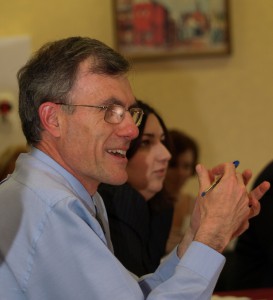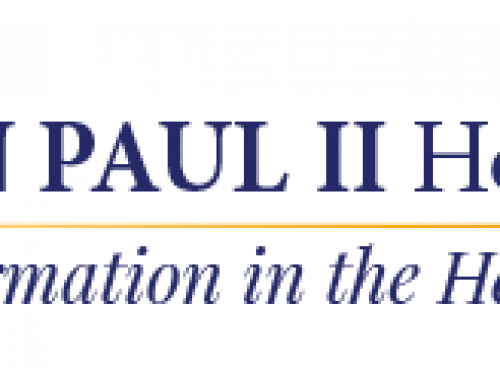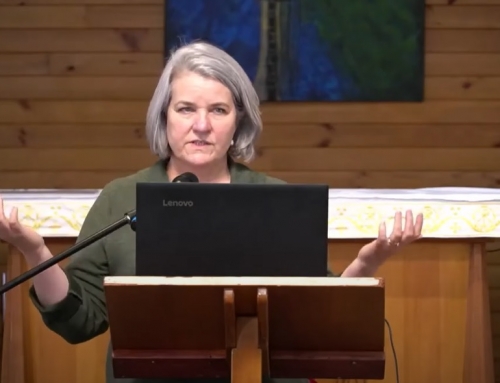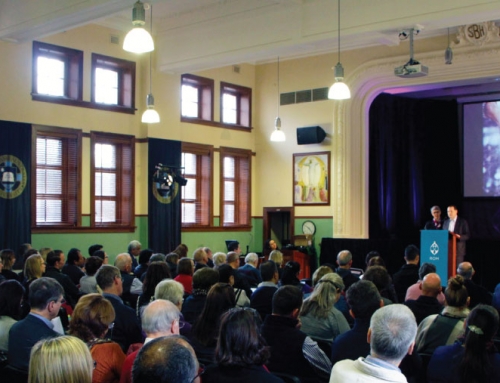 Fr Mario Debattista addresses the Roundtable on Couple Therapy
Fr Mario Debattista addresses the Roundtable on Couple Therapy
I offer these thoughts as a Catholic Priest and a practicing counsellor who has only in recent years completed training in couple and family therapy through a public university. A question that has arisen for me is of how to better integrate the theory and skills which have been offered me through my professional training with those values and beliefs that underpin my life and commitment as a Catholic, a Franciscan Friar and a priest. I am asking about the points of meeting between therapy and the Gospel, and where these points might be found in the special field of couple or marital therapy.
Firstly, I wish to state my starting point as being of an Incarnational spirituality which says that because “the Word was made flesh and dwelt among us” (Jn 1:14), so it is that the presence and action of God is already present and is to be discovered within the life and experience of human beings, including of course in their attempts to relate to one another. Being subject to sin and its effects however, we know that these attempts to relate will often times fall short of the ideal, including the ideal to which Catholic sacramental marriage invites a couple. It is at such times that I believe we can find one of the privileged places for encountering our loving God, namely in the call for husband and wife to arrive at mutual forgiveness. The capacity and willingness to forgive are clearly central to the Gospel life to which all Christians are called. But to what extent are they also part of good therapy, for individuals and for couples? I believe that forgiveness is one of those meeting points between the field of couple therapy and the Gospel.
At this point, I now wish to offer some thoughts based on my research into the role of forgiveness in therapeutic intervention for marital infidelity. By necessity, the following material is taken out of a larger piece of work which I completed last year, so my apologies if clarity is lessened due to the loss of the larger context.
Firstly, I would suggest that understanding forgiveness as a ‘process of discovery’ is perhaps the most helpful in terms of both therapeutic practice and its application as a Gospel value. This understanding is not the dominant view in the literature of therapy, but rather forgiveness is often times more regarded as “a voluntary choice or decision at a certain point in the betrayed person’s life (that) involves the active rather than passive remission of angry feelings over time.” (Legaree et al. 2007: 200) However, considering the strong negative reactions that injured partners generally experience following an infidelity, it would seem that attempting to move them towards a ‘decision’ to forgive is perhaps unlikely to elicit a positive response from them (Gordon & Baucom 1999: 392) and greater therapeutic efficacy might result from adopting a ‘forgiveness as discovery’ stance. So it is that Patton (1985: 16 cited in Hill 2001: 371) declares that “human forgiveness is not doing something but discovering something – that I am more like those who have hurt me than different from them.” He maintains that the process of discovering forgiveness usually means that in the difficult task of asking for forgiveness, the partner who has performed the infidelity must re-experience and embrace the shame of their infidelity. This leads to the surprising discovery that expressed shame facilitates personal wholeness and relational healing which is the essence of having been forgiven (Patton 1985 cited in Hill 2001: 372). Similarly, Kurtz and Ketcham (1992: 222) hold that for the injured partner, forgiveness comes from letting go of resentment by surrendering one’s vision of ‘self-as-victim.’ By seeing the injury in the perspective of one’s own imperfections and gradually realizing that one has been forgiven of these, one arrives at the discovery of having already forgiven others. The authors assert that, forgiveness is spiritual: it is one of those realities that cannot be ‘willed,’ that becomes more impossible the harder one tries to will it. Forgiveness, in fact, becomes possible only when will is replaced by willingness; it results less from effort than from openness (Kurtz & Ketcham 1992: 216).
The above quote can remind us that the capacity to forgive and arriving at genuine forgiveness is ultimately a gift of God; it is grace. Our human co-operation is obviously required, but the sort of forgiveness which Christ modelled for us and to which we are called by virtue of our baptism and so to which married couples are called in their marital commitment, is truly something of the life of God.
Returning to the issue of marital infidelity, just as an affair cannot be simply regarded as an isolated event but must be understood within the context of the couple’s relationship history, so it is that forgiveness must be understood and used within that context. This perspective suggests that therapy for infidelity is best conceptualised as a “process of coming to forgiveness,” (Gordon & Baucom 1999: 392) such that forgiveness cannot simply be identified with a specific statement or overt act (Fincham 2000: 9). This is why although forgiveness can rightly form part of the treatment philosophy from the first stage of therapy, it ought to only be explicitly addressed when the couple are more likely to be open to it (Gordon & Baucom 1999: 386).
Secondly, each individual within a couple will vary in his or her responses to a relationship betrayal in part because of their differing ways of regarding the self and the other as either positively or negatively. This will be mirrored in a variability in their capacities to forgive that betrayal. Combining this with the variety of ‘commonsense’ and culturally and religiously shaped understandings of forgiveness that influence us all (Walrond-Skinner 1998: 9), it follows that couples’ beliefs about forgiveness must be explored along with what it means for them to ‘move on.’ Healthy forgiveness requires a realistic appraisal of the partner and the relationship, and the potential risks and benefits of ‘moving on’ similarly need exploration (Gordon et al. 2008: 155-156). As the couple is helped to re-evaluate their beliefs about forgiveness and to gradually arrive at a more achievable formulation (eg. that forgiveness cannot be achieved immediately), they may discover (to their surprise) that they have already taken steps towards trying to forgive each other (Fincham 2000: 9; Gordon & Baucom 1999: 393).
Thirdly, even though forgiveness is interpersonal in that it involves partner ‘A’ forgiving partner ‘B’ some offence, it remains intrapersonal ie. something that individuals do. Consequently, although forgiveness may be facilitated by external factors, its granting does not depend on anything external to the individual. An implication of this is that forgiveness must be differentiated from reconciliation which requires the restoration of trust, and from relationship reunion which may happen for any number of reasons none of which may entail forgiveness (Fincham 2000: 7). This distinction is recognised by some models of treatment for infidelity such as by Gordon et al. (2008: 156) who accept that couples may appropriately decide to separate, though hopefully without harbouring anger and resentment towards each other. These authors encourage partners to evaluate their relationship and explore options around whether or not to remain in it. This includes an appraisal of whether either partner has shown the needed goodwill to make the changes that can prevent a recurrence of infidelity and that can rebuild sufficient trust and safety in the relationship (Gordon & Baucom 1999: 393). Because therapists such as committed Catholics who hold specific values around the permanence of marriage may find difficulty with such exploration of options around a relationship, this does become one example of when the therapist needs to clearly communicate his or her value position to the couple, while at the same time remaining attentive to all the issues at stake for the future welfare of the couple and their family.
Finally, Worthington (2006: 15) poses a frequently asked question especially following a relationship transgression, “How do I know if I have really forgiven someone?” The difficulty in answering this question for oneself, let alone for another, helps underscore something of the challenge of using forgiveness as an intervention for marital infidelity and for therapy in general. Yet, the fundamental need which human beings have to maintain relatedness in the face of the harm which we inevitably inflict on one another (Fincham, 2000: 2) means that forgiveness has increasingly been taken beyond its traditional spheres of religion and theology into that of couple and family therapy. By way of conclusion, I would like to highlight the thoughts of Derrida (2001) namely, that although the concept of forgiveness does have a role in therapeutic intervention, its character and power lie ultimately in the realm of the spiritual and divine (Sheehan 2007: 163). For perhaps this reason, Derrida suggests that forgiveness “forgives only the unforgivable … (and) … there is only forgiveness, if there is any, where there is the unforgivable.” (Derrida 2001 cited in Sheehan 2007: 164). When couples face the seemingly unforgivable experience of marital betrayal, it is perhaps then that the gift of ‘(im)possible forgiveness’ can visit them (Sheehan 2007: 163-164). In my opinion, it is perhaps also only in the face of those seemingly unforgivable moments of our relational lives that we are moved to pray for and rely upon the grace offered us by Christ to forgive “not seven times, but seventy-seven times” (Matt 18: 22).
References
Derrida, J. (2001). On forgiveness: a roundtable discussion with Jacques Derrida. In J. D. Caputo, M. Dooley & M. J. Scanlon (eds) Questioning God. Bloomington, IN: Indiana University Press.
Fincham, F. D. (2000). The kiss of the porcupines: From attributing responsibility to forgiving. Personal Relationships, 7, 1-23.
Gordon, K. C. & Baucom, D. H. (1999). A Multitheoretical Intervention for Promoting Recovery From Extramarital Affairs. Clinical Psychology: Science and Practice, 6(4), 382-399.
Gordon, K. C., Baucom, D. H. & Snyder, D. K. (2008). Optimal Strategies in Couple Therapy: Treating Couples Dealing with the Trauma of Infidelity. Journal of Contemporary Psychotherapy, 38, 151-160.
Hill, E. W. (2001). Understanding Forgiveness as Discovery: Implications for Marital and Family Therapy. Contemporary Family Therapy, 23(4), 369-384.
Kurtz, E. & Ketcham, K. (1992). The Spirituality of Imperfection: Storytelling and the journey to wholeness. Nashville, TN: Abingdon.
Legaree, T., Turner, J. & Lollis, S. (2007). Forgiveness and Therapy: A Critical Review of Conceptualizations, Practices, and Values Found in the Literature. Journal of Marital and Family Therapy, 33(2), 192-213.
Patton, J. (1985). Is human forgiveness possible: A pastoral care perspective.
Nashville, TN: Abingdon.
Sheehan, J. (2007). Forgiveness and the unforgivable: the resurrection of hope in family therapy. In C. Flaskas, I. McCarthy & J. Sheehan (eds) Hope and Despair in Narrative and Family Therapy: Adversity, Forgiveness and Reconciliation. London: Routledge. 161-172.
Walrond-Skinner, S. (1998). The function and role of forgiveness in working with couples and families: clearing the ground. Journal of Family Therapy, 20, 3-19.
Worthington, E. L. (2006). Forgiveness and Reconciliation: Theory and Application. New York: Routledge.




